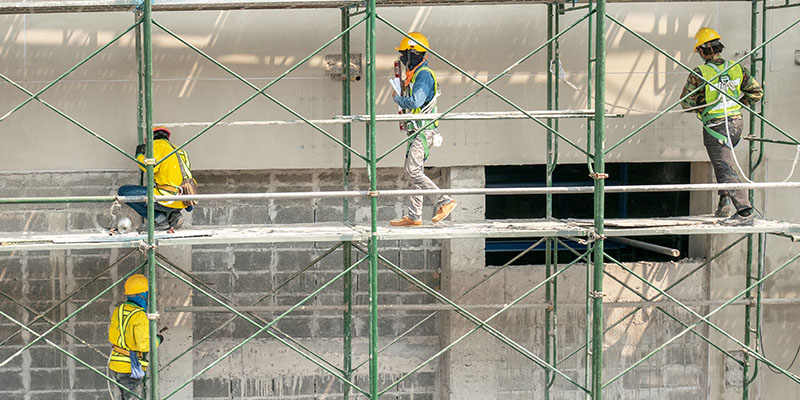
How to Insulate Concrete Walls in Commercial Buildings?
Commercial property owners should be concerned about insulation. Energy overheads can be extremely costly, especially as energy prices are continuously rising. Although not only the price factor but importantly, the comfort level of a property can be assured with sufficient insulation. Whether the building is for offices, a restaurant or a store, having effective insulation installed to ensure a more comfortable working place is crucial.
Additionally, millions of businesses around the world are striving for net-zero carbon emissions, which is something that insulation can help with. By installing effective insulation in your commercial building, you can reduce your reliance on energy-consuming applications and, in turn, reduce your carbon emissions output.
These buildings consist mainly of concrete material, for walls and floors. Unfortunately, concrete blocks allow airflow to travel in and out, leading to your heating and cooling efforts coming to nothing. Luckily, insulation can be fitted to concrete structures which can create an air barrier that will help reduce your energy loss, reduce your energy bills and reduce your carbon footprint.
Insulation Options for Concrete Building Insulation
Insulation experts will usually assess a property before recommending a course of action. Depending on the property type, age, and area of insulation to be fitted, different products can be recommended.
Some common options for building insulation are as follows:
1. Mineral Loose-Fill Insulation
This sand-like insulation product can be installed by pouring the product into the core from the top of the wall. It is a cavity-filling process that can insulate in-between concrete blocks.
The risk of mineral loose-fill insulation is that if you have any obstructions in the core, the beads may be unable to fill the occupied space.
2. Spray Foam Insulation
This product comes in two main forms, open-cell and closed-cell. Both of these options have their own benefits depending on your property and your objectives.
Open-cell foam can provide great soundproofing qualities, and due to its expansive nature when sprayed, it typically required one coat.
Alternatively, closed-cell foam is a thicker, more dense form of foam insulation. This form is more commonly used on commercial properties due to its fantastic thermal performance.
3. Polystyrene Bead Insulation
Bead insulation, such as EPS Beads, is typically used for newer constructions. Similar to the mineral loose-fill, this product is poured from the top of a wall, filling up cavities in the concrete.
These types of fill-insulation methods can provide an effective solution but pose a risk of the beads falling out if you need to cut into a cavity for any reason.
4. Injection Foam Insulation
Using the foam insulation product, holes can be strategically cut, and the foam can be injected directly in the concrete cavity wall. This will ensure to fill up every nook and cranny and create a solid air barrier, providing you with the benefits that insulation has to offer.
Get Assessed
If you’re looking for the right insulation for your next concrete commercial project, then EcoSpray-Foam Systems can provide you with a comprehensive assessment of your property. We can provide an expert opinion on the best insulation solutions for your project.
You can contact us at https://www.sprayfoam.co.uk/contact or call us directly on 0203 411 5188.


